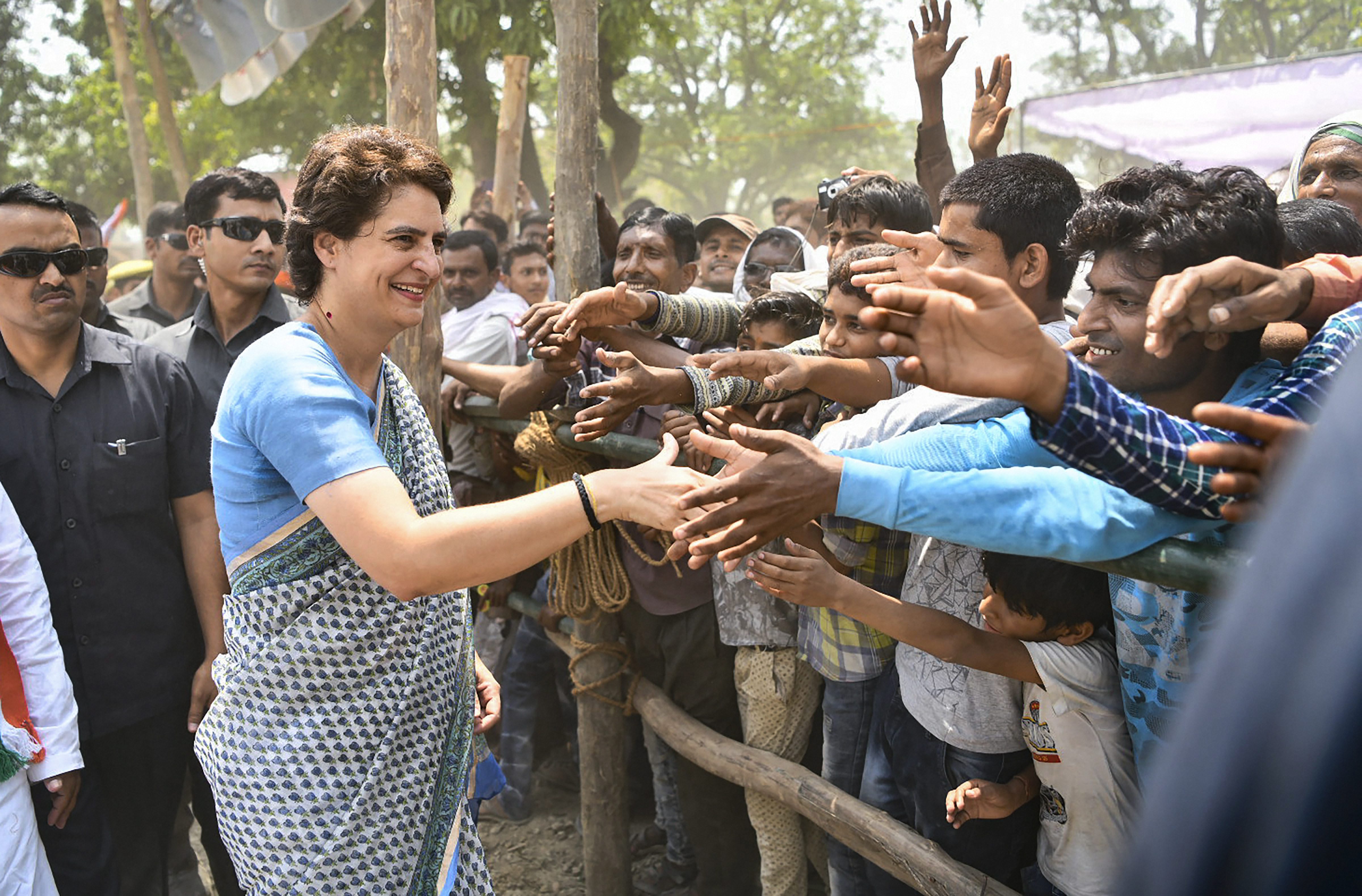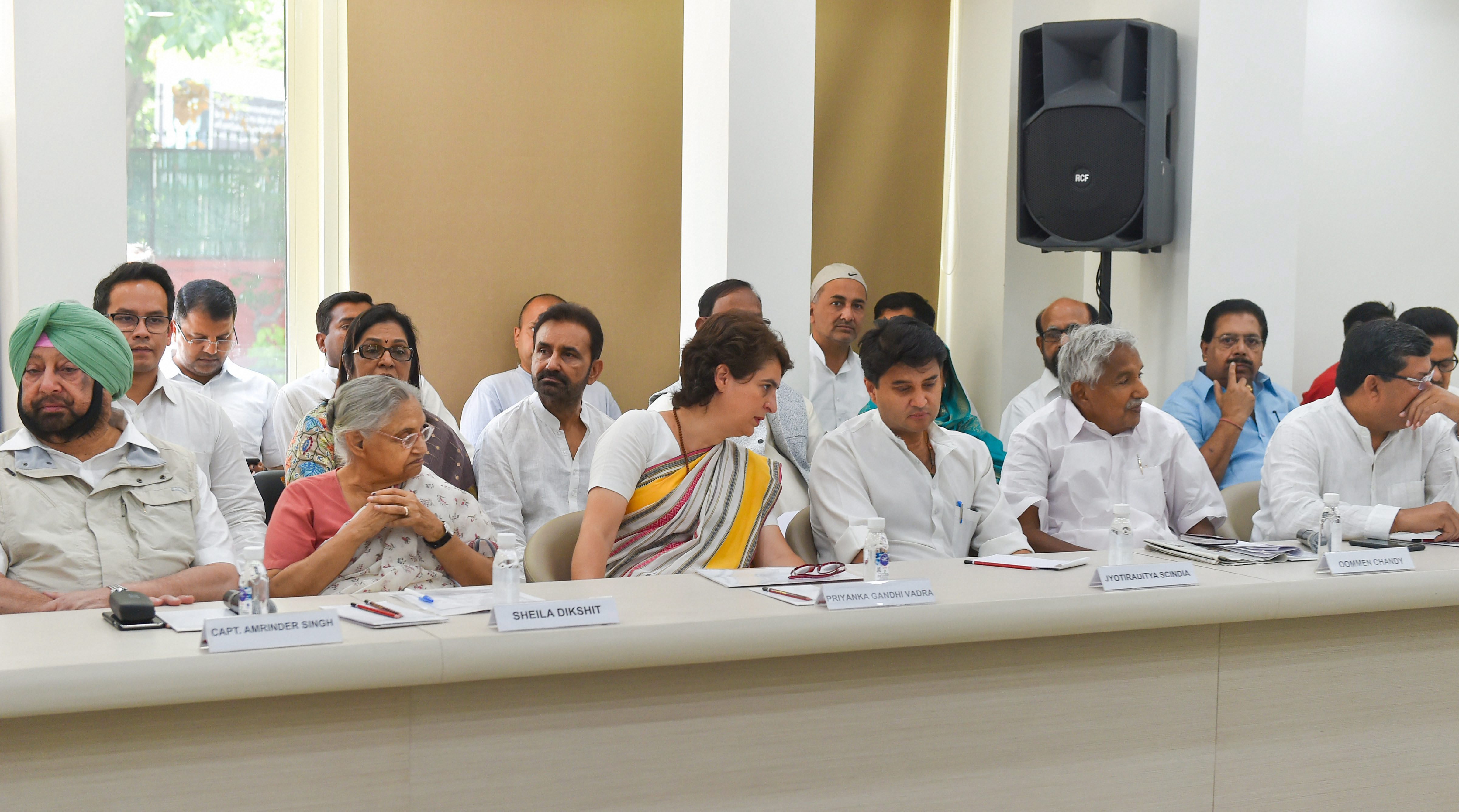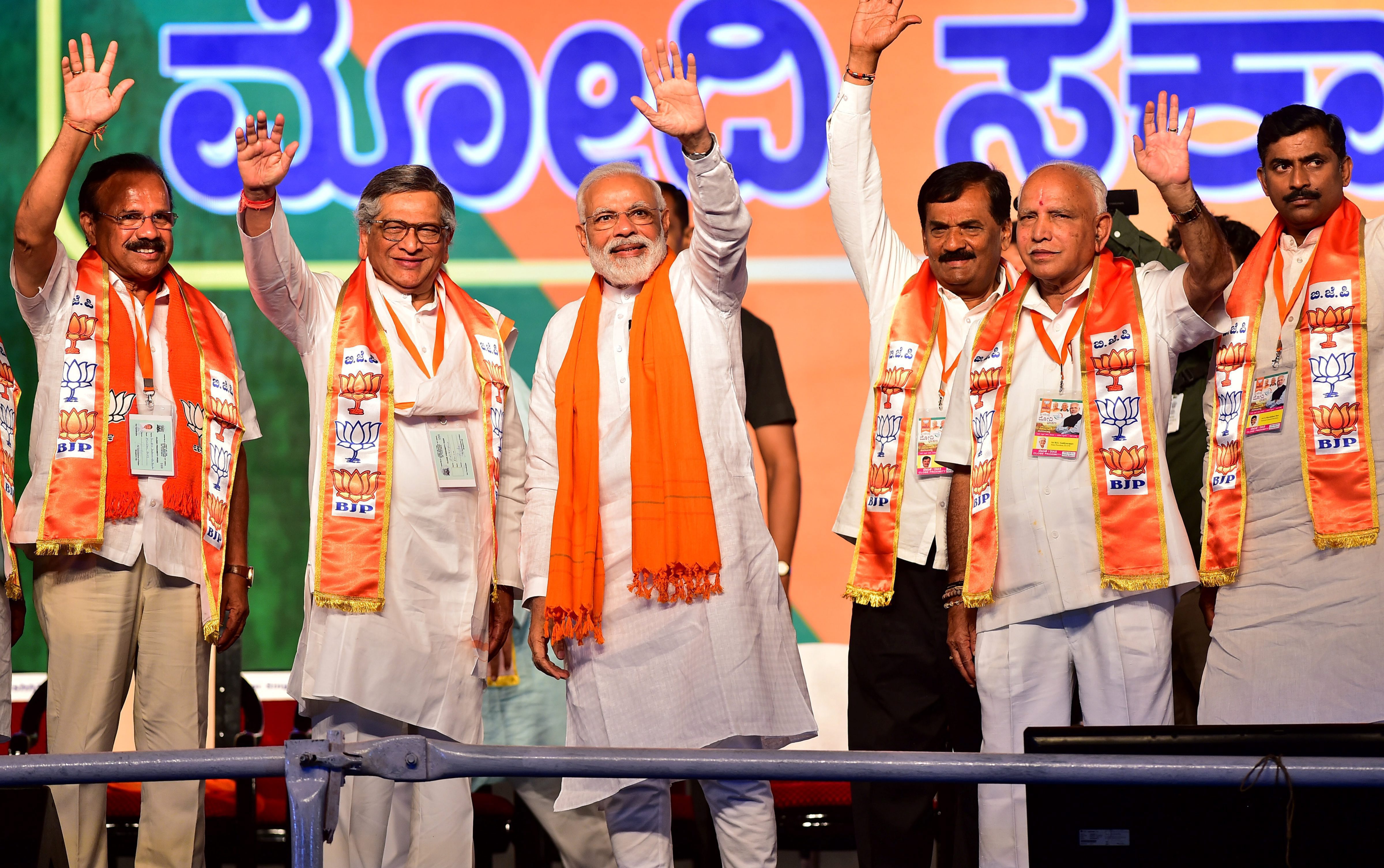
“What do they know of cricket,” CLR James once remarked, “who only cricket know?” In a similar vein, looking at the post-election analysis of the last few weeks, I am tempted to ask, “What do they know of politics who only politics know?”
There has been much post-election speculation on the happenings within the Congress party, and whether Rahul Gandhi will step down. Columnists have opined one way or another, while reporters have tried to get insider nuggets from within Congress circles. I was baffled at first by how a clearly incompetent leader could stay in charge, and why his party would not dethrone him. (‘Dethrone' is the right word.) Then I realised that I was thinking about it all wrong: this is not a political question, but a mathematical one. The answers lie in game theory.

Meri Billi, Mujhe Meow
There is a problem in game theory loosely known as ‘Belling the Cat.' It is based on a medieval fable about a group of mice being terrorised by a predatory cat. They confer and come upon a solution: the cat should have a bell around its neck. That way, whenever the cat comes near, the ringing of the bell will serve as a warning, and the mice can scatter and reconvene elsewhere.
It's a great solution. All the mice will be better off. There is just one problem: which brave mouse will volunteer to put the bell on the cat?
This is known in political theory as a Collective Action Problem. In game theory, the most common example of this is the Prisoner's Dilemma, which I won't elaborate on. Put simply, it means that while all the players in a game would be best off if they collectively achieved Outcome X, it is in their individual self-interest to work towards Outcome Y.
Consider the situation with the Congress. The party won 44 seats in 2014 and 52 in 2019, less than a tenth of the total seats on offer, under the leadership of Rahul Gandhi. It may be a subjective matter whether or not he is a klutz, but it is an objective fact that he is incompetent. The numbers don't lie. So, let's take it as a premise that new leadership would be in the party's interest. Why, then, don't party members act against Gandhi?
This is a Bell-the-Cat problem. It is in everyone's collective interest to rebel – but it is in no one's self-interest to do so. This is a party with a feudal mindset, and despite the sophisticated veneer of the Gandhis, they behave like feudal lords. This is illustrated by Priyanka Gandhi's telling quote in Rae Bareli about the candidate standing against her mother, who was an ex-Congressman. “Dinesh Pratap Singh was part of our party and used to touch our feet,” she said. “He has now changed sides. But Rae Bareli will teach him a lesson.”

That is metaphorically accurate. Anyone who doesn't touch the feet of the Gandhis will be taught “a lesson.” And anyone who rebels and fails could be committing political suicide. If you are a Congressman, it makes sense to stay in the good books of the Gandhis, wait for someone else to rebel, and to jockey for position later if the rebellion is successful.
The Race To The Sycophantic Bottom
You might think that if a critical mass of Congress leaders came together, they would be bound to succeed, and they would all be better off. In practice, not only would such a group not succeed, it would not even form. Consider that once such a group exists, it would be in the interest of each one of its members to defect back to the Gandhis and snitch on the rebels. That would both elevate that person's standing within the party as well as eliminate many rivals from positions of power. No matter what the group size, ratting is optimal.
And because ratting is inevitable, such a group would never even form. Any individual who broaches the thought with a colleague risks the danger of being ratted upon. A rebellion can never even begin.
Not only is it optimal to not rebel, and to rat on anyone who does, it is also optimal to genuflect. This is because power and influence within the party are a zero-sum game, and loyalty is relative. You can show your loyalty by not rebelling – unless everyone else is also not rebelling. In that situation, you need to suck up a bit – unless everyone else is also sucking up a bit. In that situation, you have to suck up a lot – unless… you get the picture. The rational conclusion of this game is one in which the Gandhis are on a throne in an echo chamber, with everyone else prostrate before them and kissing their feet. This does seem to be the case now.

A Change In Expected Value
Will this state of affairs last forever, with the leadership passing to Priyanka Vadra's kids or Rahul Gandhi's pet parakeet or whatever? Well, no. At some point, the math will force a rebellion – even if Congressman don't explicitly think in terms of the numbers. Let me break down the process for you with some imaginary numbers. Indulge me while I introduce you to hypothetical metrics for Power (of the party) and Welfare (of the individual).
Say the Congress has 1,000 units of power. A Congressman close to the Gandhis can derive 10 units of Welfare from this. If a rebellion is successful, the Congress can be revived, with a 50 percent chance of growing to 2,000 units. A successful rebel can double his Welfare to 20 units – but a rebellion will only succeed 5 percent of the time, and the Congress will then revive only half the time, so your expected value from rebelling is below 1 unit. Better to stay close to the Gandhis.
This also holds true for defectors. Maybe joining the BJP gives you 20 units of Welfare – but only 10 percent of the time, as you are an outsider. That works out to 2 units, so unless you are personally wooed by my namesake Amitbhai, which would change the probabilities, it's best to stay with the Gandhis.

But as the Congress continues dying, and its influence diminishes, this math changes. What if the Congress dips to 500 units of Power, and the chances of a rebellion succeeding go up to 30 percent? What if it dips to 100 units? At some point, the benefits of being a confomist with the dying party will be less than the EV of rebellion. As Bob Dylan presciently sang, no doubt with the Congress in mind, “When you ain't got nothin', you got nothin' to lose.”
The numbers above are illustrative, and you can feed in your own numbers there. My purpose of this exercise was to show: One, it is rational for every individual Congressman to genuflect to the Gandhis; Two, it is inevitable that the math will one day change. It will probably change too late, and it will be ironical if that is so. A 50-year-old politician who joined the Congress instead of the BJP 30 years ago made the right choice, by far, back then. But then the winds of fortune changed, and the poor fellow was caught in a series of rational acts that led, eventually, to political irrelevance. It is almost heartbreaking. Almost.
Amit Varma is a writer based in Mumbai. He has been a journalist for a decade-and-a-half, and has won the Bastiat Prize for Journalism twice. He writes the blog India Uncut and hosts the podcast The Seen and the Unseen.
The views expressed here are those of the author and do not necessarily represent the views of BloombergQuint or its editorial team.
Essential Business Intelligence, Continuous LIVE TV, Sharp Market Insights, Practical Personal Finance Advice and Latest Stories — On NDTV Profit.























